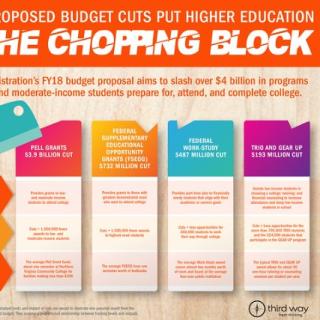Advertisement
The Columbus Charter Review Committee is considering possible recommendations for changing Columbus City Council. City officials announced the committee just weeks before the August 2, 2016 special election on Issue 1. Columbus voters in that election turned down a citizens' initiative to expand the size of council and add district representation. Before the vote, city officials said the committee would use a better process for studying reforms of council.
The committee sees problems with the present council of seven members all elected at large. They recognize that council's size is smaller than in similar cities. They likely think each council member cannot be familiar with all of Columbus' more than 200 neighborhoods. And they're concerned that some areas have had no representative on council for decades.
At its January 20 meeting, the committee began formulating possible reforms to address those problems. The Committee is considering for council's structure: (1) expanding council's size to nine members; (2) dividing the city into nine council districts, each represented by a council member who must reside in the district; and (3) electing the council members citywide instead of from the districts, in both the primary and general elections.
This plan guarantees each area a council member residing there, thus increasing the chances that at least one member will be familiar with the area. But the plan ignores a number of problems that many have identified regarding council. Those problems helped lead to the Issue 1 citizens' initiative.
First, the plan does nothing about the problem of council consisting entirely of Democrats. In a city approximately 70 percent Democratic, citywide elections will almost surely continue producing all-Democratic councils. This leaves Columbus' hundreds of thousands of non-Democrats unrepresented on council. Plus, even The Columbus Dispatch has blamed the one-party makeup of council as a probable cause of recent scandals in the city government, pointing out that no one from an opposition party is there to blow the whistle on wrongdoing.
Second, the plan continues the problem of council candidates having to turn to big-money special interests to fund their expensive citywide political campaigns. This increases the likelihood of council members being more responsive to those wealthy interests than to neighborhoods and regular citizens.
Third, it's doubtful how accountable the district representatives will be to their districts under the plan, because almost 90 percent of their voters will live outside the district. If residents in a district are dissatisfied with their council member and vote to remove the person, their wishes could easily be thwarted by residents in the rest of the city voting to keep the person in office.
Fourth, the plan could produce violations of Voting Rights Act of 1965. The Act says a violation occurs when an election system leaves racial minorities with less opportunity "to elect representatives of their choice." If a largely African-American district voted for a person as the district's representative, but their decision was nullified by white voters in other parts of the city, the result would appear contrary to the Voting Rights Act.
All these problems would be solved by having district representatives elected from districts instead of citywide. The city's political and racial minorities could elect council members from districts where they constitute a substantial percentage of the population. The costs of running in districts would be lower than running citywide. And voters in the districts could hold their representatives accountable.
So far, a majority of the committee has disfavored recommending those types of district elections, probably because of unsubstantiated claims from the mayor's office that the result would be infighting on council. The committee could obtain a different view by receiving more objective information.
For example, Conor Johnston is a legislative aide in San Francisco and has knowledge of that city's experiences with district and at-large elections. He wrote: "I think district representation is far better for constituent services and the overall responsiveness of our elected officialdom . . . I also think it greatly reduces infighting since they don't run against each other and, in a lot of day-to-day ways, operate independently."
His information was received by this author within hours after an email was sent to the San Francisco Board of Supervisors. But the Columbus city employees researching for the committee seem to have trouble obtaining pro-district information for the members.
It's therefore important that citizens share their views with the members. The committee's next, and possibly final, meeting will be on Thursday, February 9, at 1:00 p.m. in City Hall. A subsequent meeting, if necessary, has tentatively been set for Friday, February 17, also at 1:00 p.m. in City Hall. Public comments can be made at the meetings. Written comments can be submitted on the committee's website at https://www.columbus.gov/council/Charter-Review/Charter-Review-Committee/



